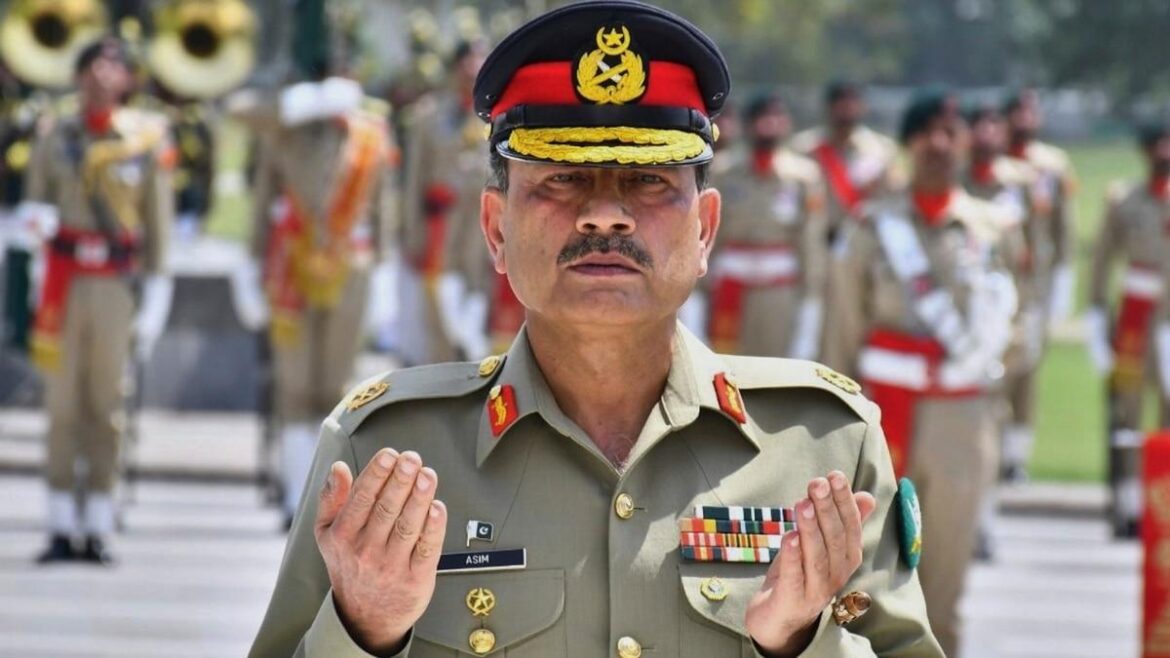Munir Sparks New Controversy at Pakistan Naval Academy
In a speech that has already stirred regional unease, Pakistan Army Chief General Asim Munir accused India of military aggression and warned of a “decisive response” to any future provocation. Speaking at the Pakistan Naval Academy in Karachi on Saturday, Munir labeled India’s actions as lacking “strategic foresight” while portraying Islamabad as a force for regional stability.
“Despite provocations, Pakistan displayed restraint and maturity, reaffirming its commitment to regional peace,” he told cadets and officers gathered at the ceremony.
Makes you wonder – is rhetoric like this really about defense, or something deeper? Possibly political. Possibly not. But it wasn’t just about India. The general took his moment to zero in on Kashmir, again.
What Happened in Karachi
Munir’s remarks came during a formal address at one of the country’s top military academies at a time of renewed regional tension. He declared that Pakistan had been attacked by India on two separate occasions without provocation and accused its eastern neighbor of “escalating tensions” even as Islamabad nears what he claimed was “the elimination of terrorism.”
He didn’t specify what those attacks were, but close followers of South Asian diplomacy might point to the Balakot air strikes in 2019 or cross-border skirmishes in Kashmir. What’s clear is that Munir wants to appear both assertive and composed—not always an easy balance to strike.
Blame and Threats: Familiar Rhetoric
“Pakistan is a net regional stabiliser,” he declared, positioning the country not as a threat, but as a peacekeeper. Still, the tone of his address contradicted that message.
He warned that any future aggression from India would receive an immediate and forceful reply. If that sounds like saber-rattling—well, perhaps it is. But this isn’t the first time Munir’s sought to corner India rhetorically.
Kashmir: The Ever-Present Flashpoint
The general revived one of the most sensitive issues in South Asia: Kashmir.
“At such a time, we must remember the sacrifices of our Kashmiri brothers who are struggling against India’s illegal occupation,” Munir said, restating Pakistan’s long-standing position and calling for international intervention based on United Nations resolutions.
He reiterated his controversial statement that “Kashmir is our jugular vein; it will remain our jugular vein; we will not forget it.”
That phrase isn’t new. It’s deeply rooted in Pakistan’s political vocabulary. But repeating it—so soon after terrorist violence—only fuels an already volatile situation.
India’s Likely Perception
India is unlikely to treat the statement as benign. After all, this latest speech follows a frankly disturbing sequence of events. Just days after Munir’s “jugular vein” statement, terrorists slaughtered more than two dozen male tourists in the scenic region of Pahalgam, Kashmir.
Indian authorities squarely blamed Pakistan-backed militants for the massacre, and Delhi didn’t wait long to act.
- India responded by temporarily suspending the Indus Waters Treaty – a move with long-term regional consequences.
- It also initiated Operation Sindoor, which reportedly targeted terror infrastructure inside Pakistan-controlled territory.
Makes one think—was Munir’s comment really about regional peace? Or something else entirely?
Double Message?
In his speech, Munir tried to walk a tightrope: portraying Pakistan as a peace-seeker while holding back punches for India. But can both messages survive together?
On one side he warned of aggression; on the other, he painted his country as the adult in the room, restraining itself while under threat. Is that sustainable messaging, or just an elaborate game of geopolitical posturing?
Domestic Audience, Global Implications
Some analysts argue that these public pronouncements aren’t aimed at India at all—but at controlling the narrative within Pakistan.
When national morale is low, and economic pressures are rising, a sharp external enemy can create a temporary sense of unity. Munir may be appealing as much to his own citizens and military establishment as to regional rivals.
But threats have a habit of circling back. And if militants take such language as a green light, the consequences could be catastrophic—not just for India or Pakistan, but for the entire subcontinent.
What’s at Stake Now?
The situation remains fluid. India has remained relatively quiet at the diplomatic level following Munir’s latest barbs, but military officials are surely monitoring developments closely.
As for Pakistan, its attempts to strike a balance between defending sovereignty, voicing support for Kashmir, and claiming a stabilising role could wear thin—especially if more violence unfolds in the region.
Questions for the near future:
- Will more military action follow India’s Operation Sindoor?
- Could diplomatic efforts succeed in drawing both sides back from confrontation?
- Are these speeches laying groundwork for further escalation, or just political theatrics?
The Bigger Picture
The echoes of Munir’s speech won’t fade quickly. Whether you see it as defensive nationalism or strategic deflection, the strain between the two nuclear neighbors is undeniably sharper.
With Kashmir once again at the center, words will matter. And when those words come from the head of an army with a long reach and deep influence in foreign policy, they move more than just news cycles.
But looming beyond tactics and postures is a simple, visceral truth: millions of lives are affected by every decision made across these borders. And so, perhaps, restraint deserves louder applause than threats—even if headlines suggest otherwise.

